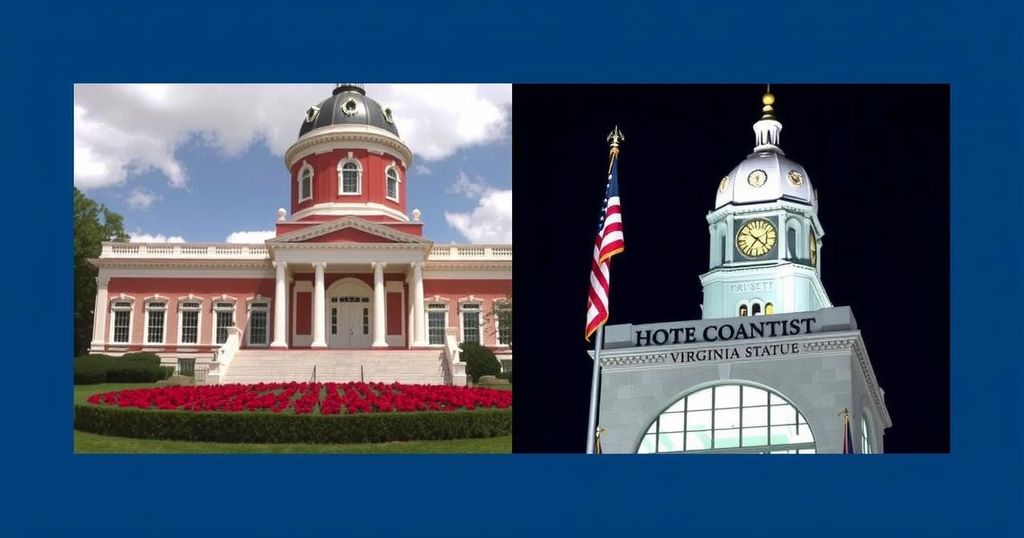Virginia’s Crucial Special Elections: A Battle for Statehouse Control

Three special elections in Virginia, crucial for statehouse control, will fill Senate and House vacancies. Candidates from both major parties are addressing significant issues such as abortion rights and economic stability, as voter sentiment following recent federal elections comes into play. The outcome could shift the narrow Democratic majority, impacting legislative initiatives in the state.
In Virginia, the outcome of three special elections is pivotal to the control of the state legislature. These elections will fill two state Senate vacancies and one open seat in the House of Delegates, creating significant implications for the Democratic and Republican parties as they navigate the final year of Governor Glenn Youngkin’s term. The elections will be closely monitored by analysts as an indicator of voter sentiment following the results of the November presidential race, particularly in the wake of Democratic losses in federal contests.
Candidates include Republican Tumay Harding and Democrat Del. Kannan Srinivasan, competing for the Senate seat in Loudoun County after former Senator Suhas Subramanyam’s election to the U.S. House. Concurrently, Democrat JJ Singh and Republican Ram Venkatachalam are contesting Srinivasan’s former seat in the House of Delegates. Additionally, in Goochland County, Republican Luther Cifers faces Democrat Jack Trammell for another Senate seat.
In the wake of recent resignations, Senate Democrats hold a narrow majority, leading to heightened stakes for these elections. The candidates’ campaigns largely focus on critical issues such as abortion rights and economic concerns, indicative of broader national trends within the Democratic Party. Ciphers and Trammell, while representing alternative sides of the political spectrum, also acknowledge the transformation of voter priorities in traditionally Republican districts.
Both Republicans and Democrats are keenly aware of the impact these elections may have on legislative power and voter engagement in Virginia. As the candidates address pertinent issues affecting their constituents—such as educational policies, crime, and economic stability—they hope to sway voters and solidify their respective party platforms. The significance of these elections cannot be overstated, as they represent a critical juncture in Virginia’s political landscape during this transformative period.
The three special elections in Virginia serve as a crucial battleground for both major political parties as control of the state legislature hangs in the balance. Following recent resignations and a narrow Democratic majority in both chambers, these elections represent an opportunity for the Republicans to regain ground and influence state legislation. The candidates represent a spectrum of political ideologies, with campaigns focused on urgent local and national issues, including reproductive rights and economic recovery. Understanding the implications of these elections requires an analysis of statewide political trends and voter behavior post-election.
In summary, the special elections in Virginia could significantly affect the balance of power in the state legislature as both parties vie for control during a crucial political period. With key issues such as abortion rights and economic conditions at the forefront of candidates’ campaigns, voter engagement and turnout will play a critical role in determining the outcomes. These elections are emblematic of the broader national narrative surrounding partisan dynamics in the United States.
Original Source: abcnews.go.com







